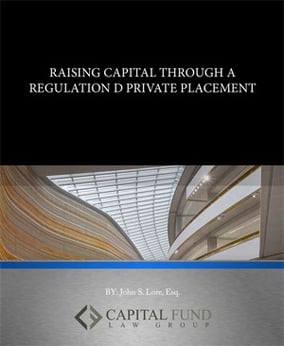Venture Capital Funds
VENTURE CAPITAL FUND FORMATION
Venture capital funds are diverse and often distinguished by their various strategies, areas of focus, and business practices. Managers can differ significantly in their approach and involvement with the portfolio companies, with many choosing to provide substantial operational guidance, support, or shared services. Venture capital funds often focus their investment strategy on particular geographies, technological capabilities, or business models.
Venture capital funds are almost always structured as closed-end funds. A closed-end fund is an investment vehicle intended to continue for a fixed period. Venture capital funds commonly have a long-term investment horizon, given that the assets are highly illiquid and difficult to value. A venture capital fund’s term is typically seven to twelve years, with a ten-year term being common.
Venture capital managers need to understand the structure of their fund, capital raising strategy, and investment terms, as it will impact tax-related matters, as well as the contents of the internal and offering documents; this includes appropriate terms, disclosures, and the specific responsibilities of the manager and the general partner.
The fund’s strategy drives investment terms, the market trends within the fund’s sector or target capitalization stage, and the specific needs and objectives of the fund. When correctly prepared, the fund’s documents and terms should appropriately protect the manager. A manager’s legal counsel must understand current investment market trends and how those trends impact the fund's strategy.
Developing a compliant and focused capital raising strategy is equally as important to a venture capital fund's success as the investment strategy. Before launching a fund, emerging managers generally start with securing soft commitments from a handful of experienced and sophisticated anchor investors; these strategic investors will perform the early due diligence function on the fund’s manager(s), which will later help with the proof-of-trust between future prospective investors and the management team during the capital raise.
EXPERIENCED LEGAL COUNSEL & FLAT-FEE SERVICES
At Capital Fund Law Group, we focus our expertise and knowledge on investment advisory services, fund formation, securities law, corporate law, and taxation. Our client-tailored flat fee will take you from start to finish, assuring no unexpected, hidden charges during the formation process.
We concentrate our expertise on your specific legal needs, which may include various factors, such as structure, strategy, and terms. Our attorneys welcome an initial consultation to discuss your investment goals. During your consultation, we will detail our venture capital fund services and customizable post-launch legal compliance program.
The links below dive deeper into the importance of structure, capital raising, and terms for venture capital funds.
Part I: Raising Capital - Key Factors of Venture Capital Fund Formation
Part II: Structural Considerations - Key Factors of Venture Capital Fund Formation
Part III: Investment Terms - Key Factors of Venture Capital Fund Formation
Schedule your complimentary consultation with one of our experienced attorneys to discuss the legal structure, regulatory requirements, timeline, and costs of forming a venture capital fund.
Private Placement Resources
Information & Downloads
Raising Capital Through a Regulation D Private Placement | by John S. Lore, Esq.
This eBook provides a guide through the process of raising capital by a private securities offering through the use of a private placement memorandum (“PPM”). The eBook explores the various components that are involved in structuring and preparing a private securities offering, including: how to determine the offering structure, choosing the proper registration exemptions, and marketing the offering to qualified investors.
Preparing A Private Placement | by John S. Lore, Esq.
To effectively raise capital through a Regulation D private placement, a company must safely navigate the complex regulatory structures that govern the offering. Unintentionally deviating from regulatory disclosure requirements can result in serious consequences for the issuer and its directors, officers, and managers. Experienced legal counsel plays a vital role in guiding companies through their various responsibilities and can help managers avoid devastating mistakes as they raise capital.
This white paper describes a private placement for an operating company in a debt or equity capital
Real Estate Fund Sample PPM Excerpt | an example document
The Following is a concise model excerpt of a private equity fund private placement memorandum (PPM). The PPM is based on a fictitious closed-end real estate fund investing in
The excerpt highlights many of the fund investment terms that should be considered when forming in a private equity real estate fund. The excerpt is intended to provide an idea of the type of information and level of detail that should be expected in a fund and provide a starting point for discussions with an investment fund attorney



